Two years of war in Ukraine: How a demining project is bringing hope to farmers
Rural areas of Ukraine have become danger zones scarred by war. Niema Abdelmageed and Antoine Vallas meet farmers who are rebuilding their lives in the world’s most heavily mined country
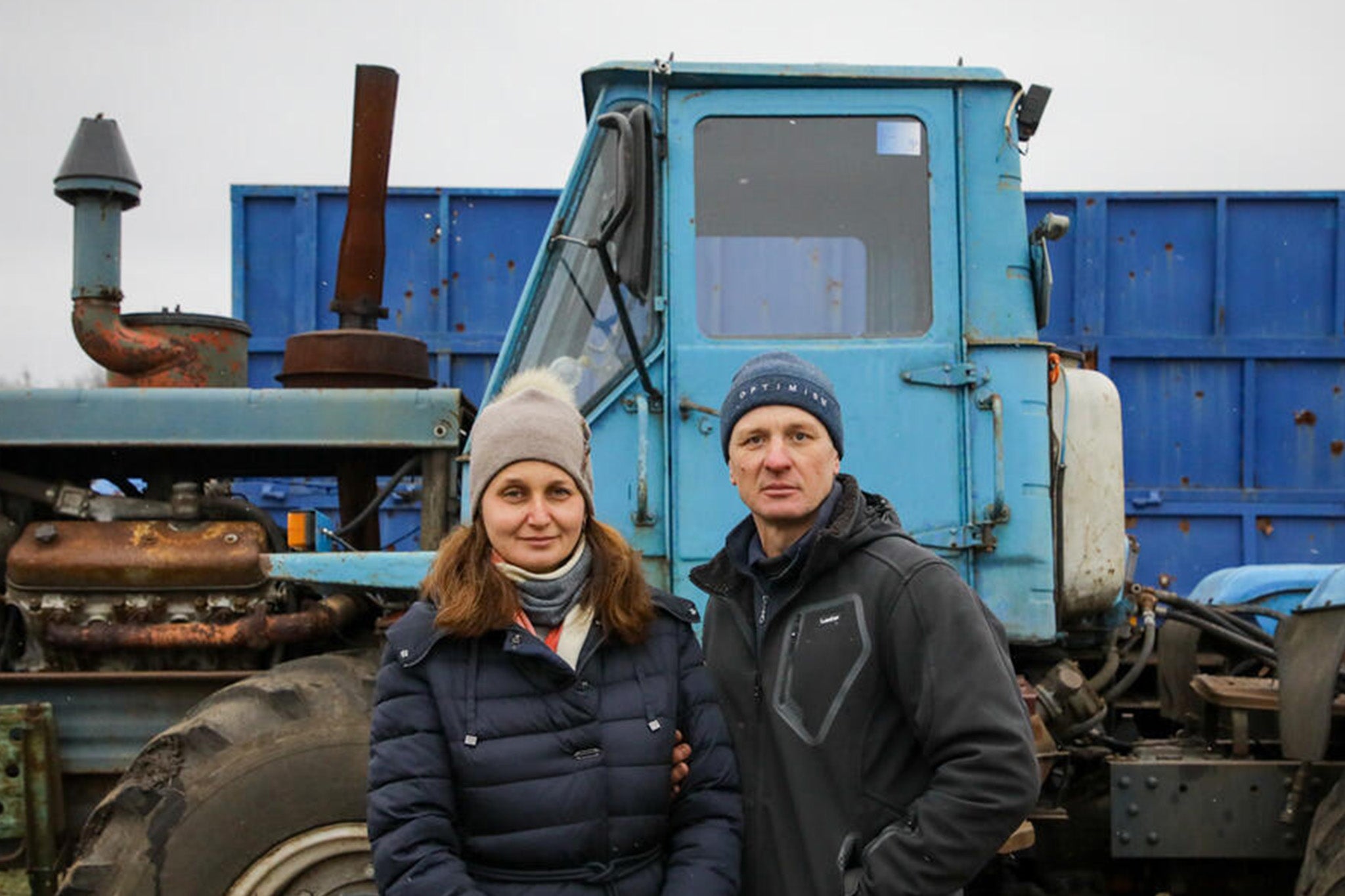
Your support helps us to tell the story
From reproductive rights to climate change to Big Tech, The Independent is on the ground when the story is developing. Whether it's investigating the financials of Elon Musk's pro-Trump PAC or producing our latest documentary, 'The A Word', which shines a light on the American women fighting for reproductive rights, we know how important it is to parse out the facts from the messaging.
At such a critical moment in US history, we need reporters on the ground. Your donation allows us to keep sending journalists to speak to both sides of the story.
The Independent is trusted by Americans across the entire political spectrum. And unlike many other quality news outlets, we choose not to lock Americans out of our reporting and analysis with paywalls. We believe quality journalism should be available to everyone, paid for by those who can afford it.
Your support makes all the difference.Winter has cast an icy grip over the eastern Ukrainian village of Kamianka. But not so long ago, resident farmers Volodymyr Kornich and his wife Liudmyla would have been looking ahead to spring planting.
Over nearly a quarter of a century, the couple have slowly expanded their business, growing a mix of grains, vegetables and watermelon, and raising chickens, cows and pigs.
But now, their work has ground to a halt. Not because of the harsh weather, but because of landmines. “In this village, we can only feel safe in our own yard,” says Volodymyr. “When you go outside, there is danger waiting for you.”
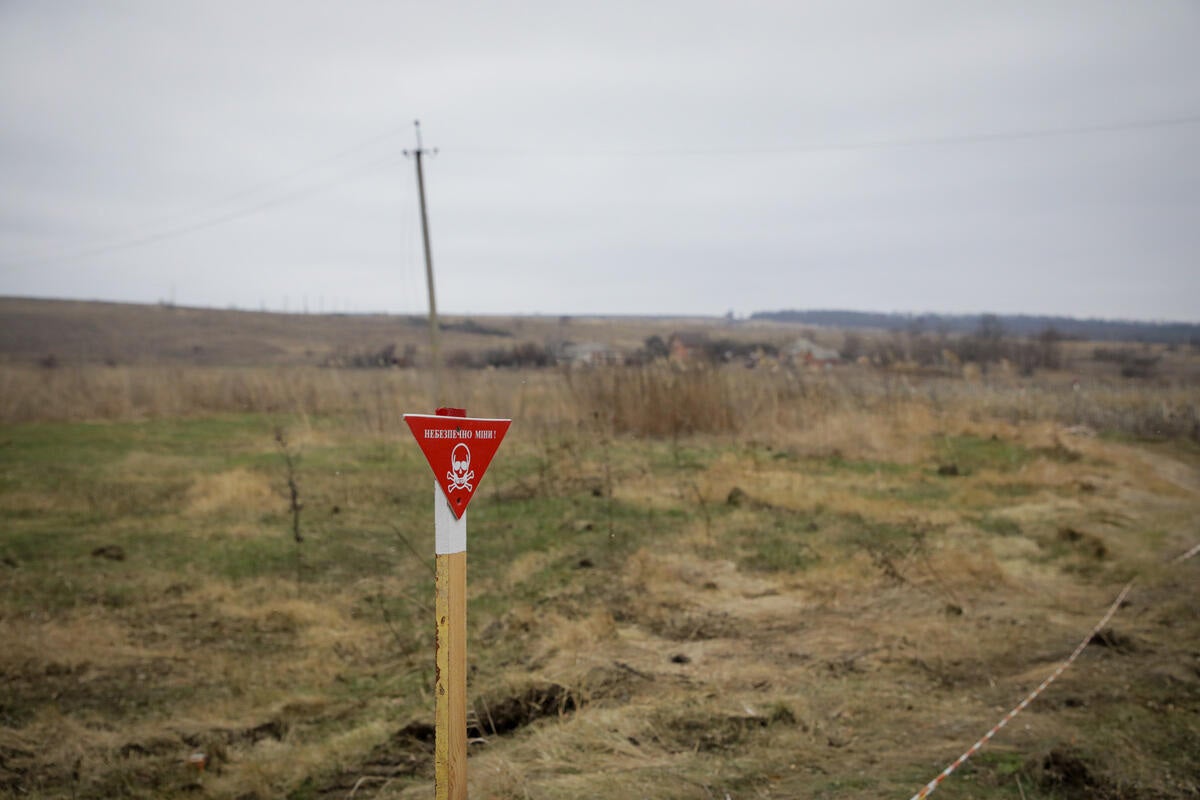
As the war enters its third year, Ukraine has outstripped Afghanistan and Syria to become the most heavily mined country in the world. Roughly 25,000 sq km of agricultural land – an area larger than Wales – is potentially strewn with mines and other dangerous debris from the conflict. These hazards have so far killed and maimed hundreds of people.
Landmines are also pushing up global grain prices – and poverty.
Smallholder farmers who, like Volodymyr and Liudmyla, cultivate less than 750 acres of land are responsible for the vast majority of milk, cattle, fruit and vegetable production in the country, and they are especially threatened. Many have halted or reduced their production, and almost all are surviving on dwindling revenues.
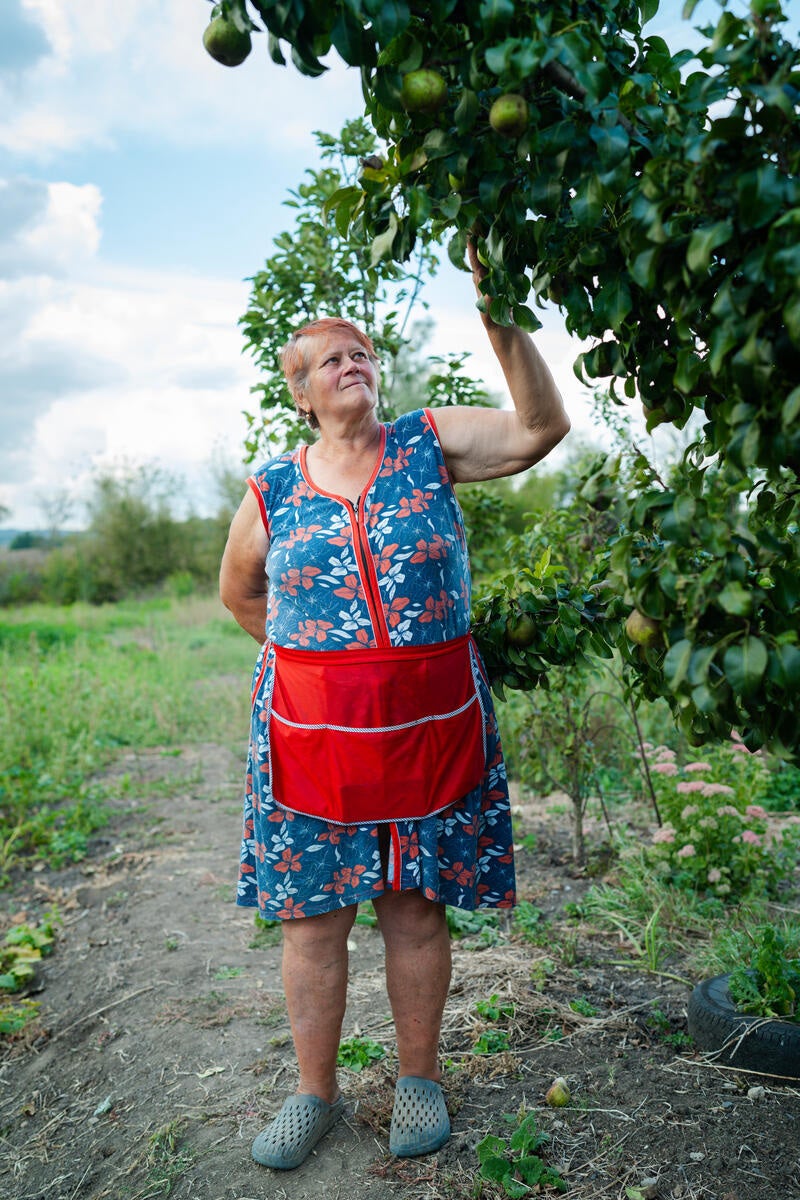
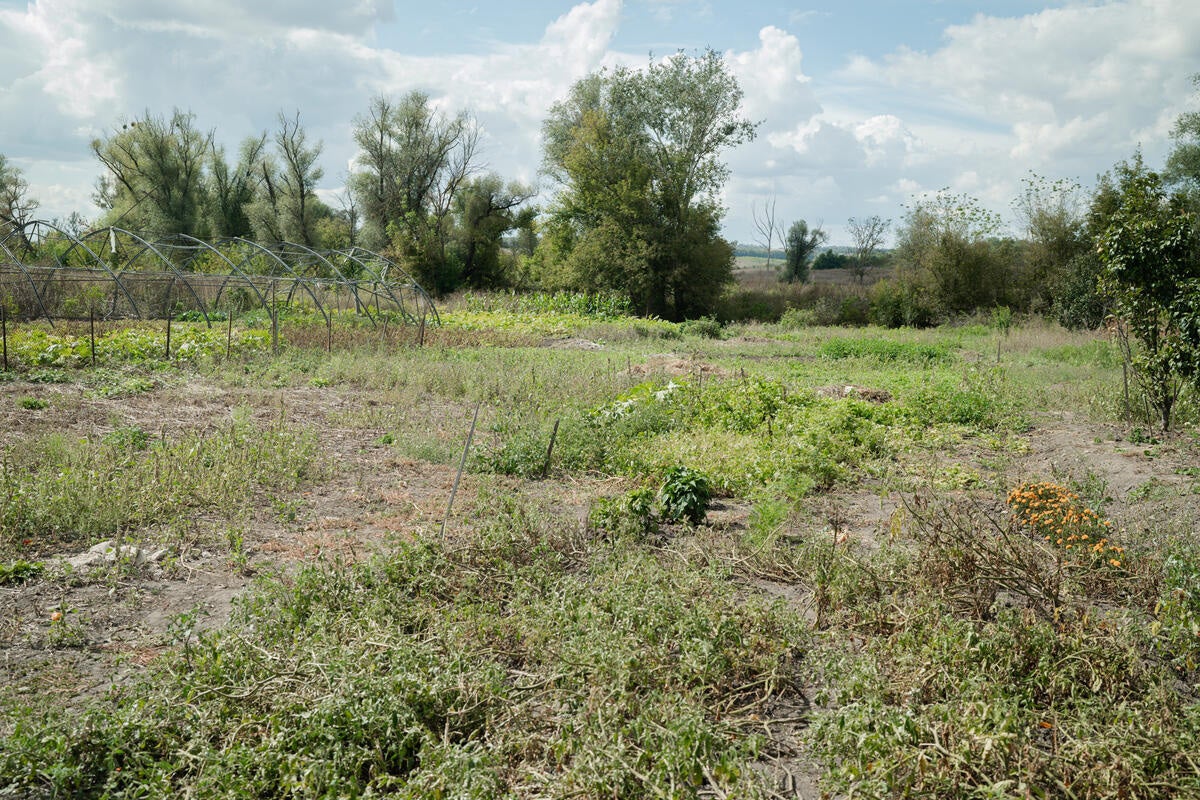
But today, a small section of the couple’s land has been cleared, thanks to a joint demining project run by the World Food Programme (WFP) and the Food and Agricultural Organisation of the United Nations (FAO), with support from the Geneva-based NGO Fondation Suisse de Deminage.
The programme is initially being rolled out in the eastern region of Kharkhiv, with plans to expand to two of Ukraine’s other top farming regions, Mykolaiv and Kherson.
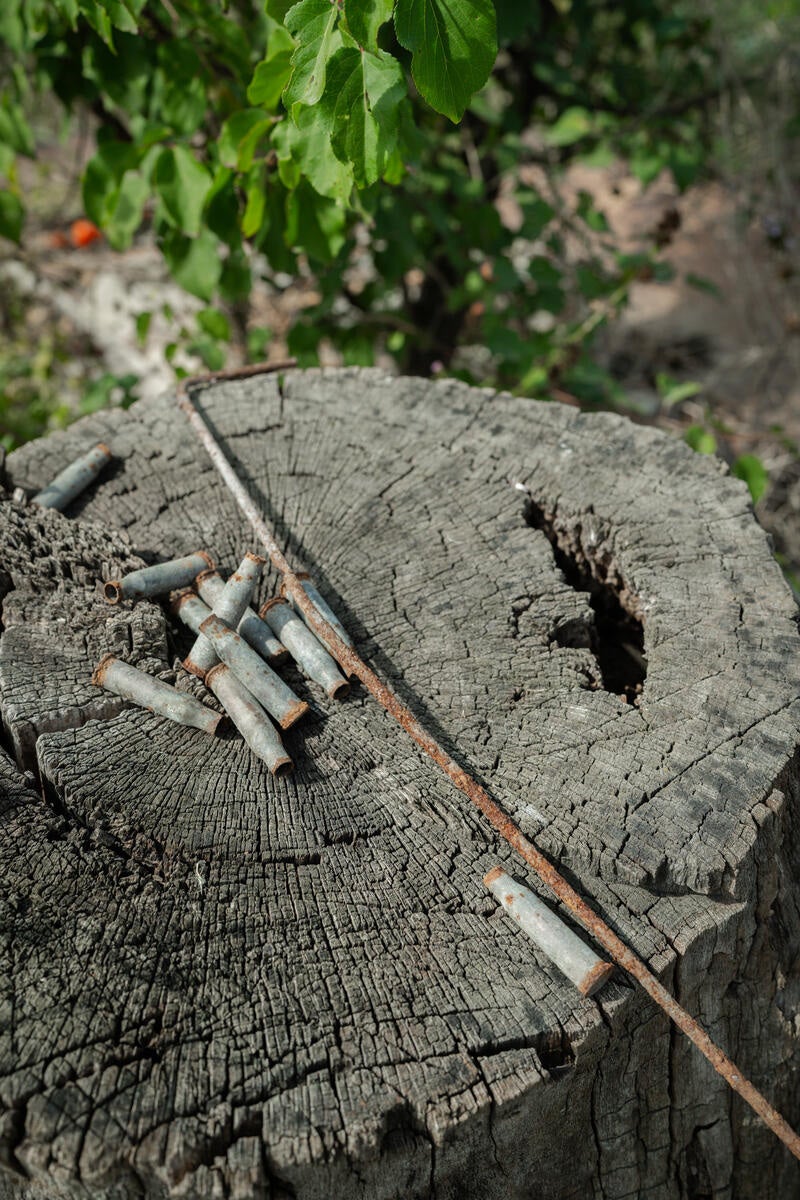
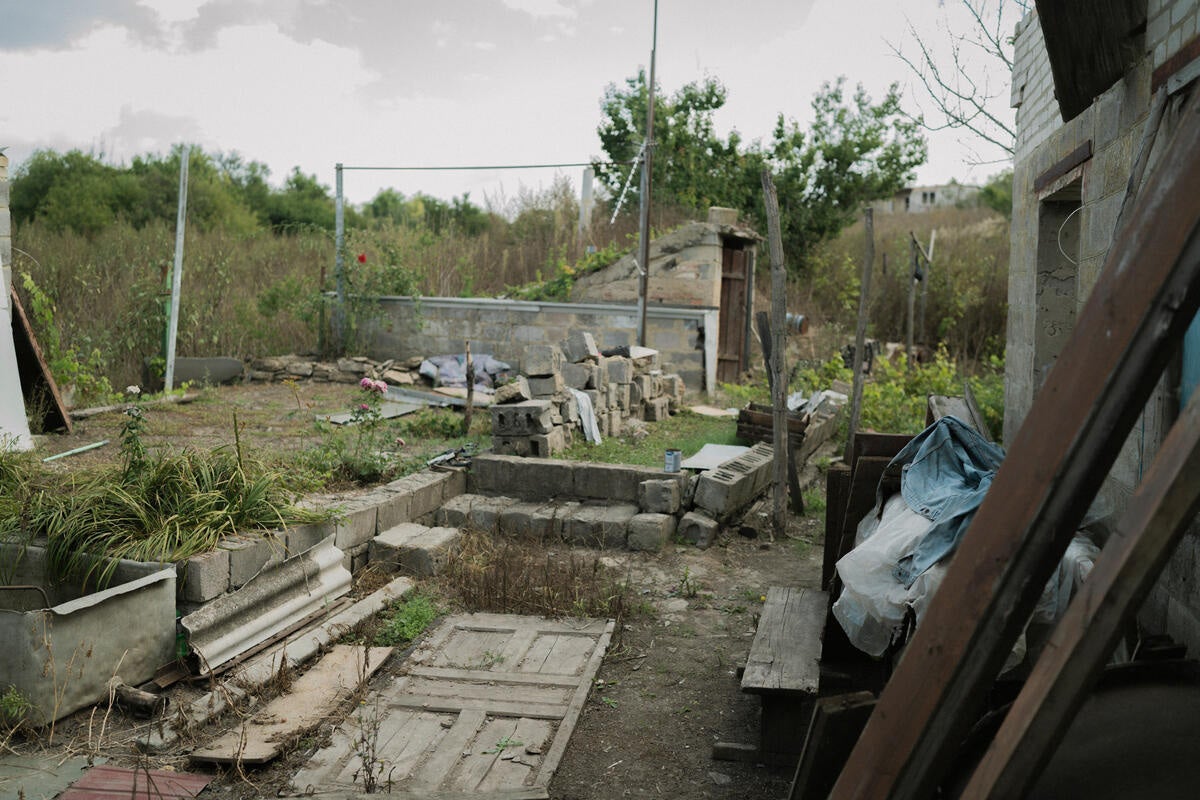
Both the goal and the price tag of Ukraine’s wider demining project are daunting: the World Bank estimates the cost could exceed $37bn (£29bn).
But demining also brings major financial returns. The smallholder-focused project alone could potentially save up to $60m in direct food assistance to people living in rural communities – like Kamianka – who struggle to afford food and other basic necessities.
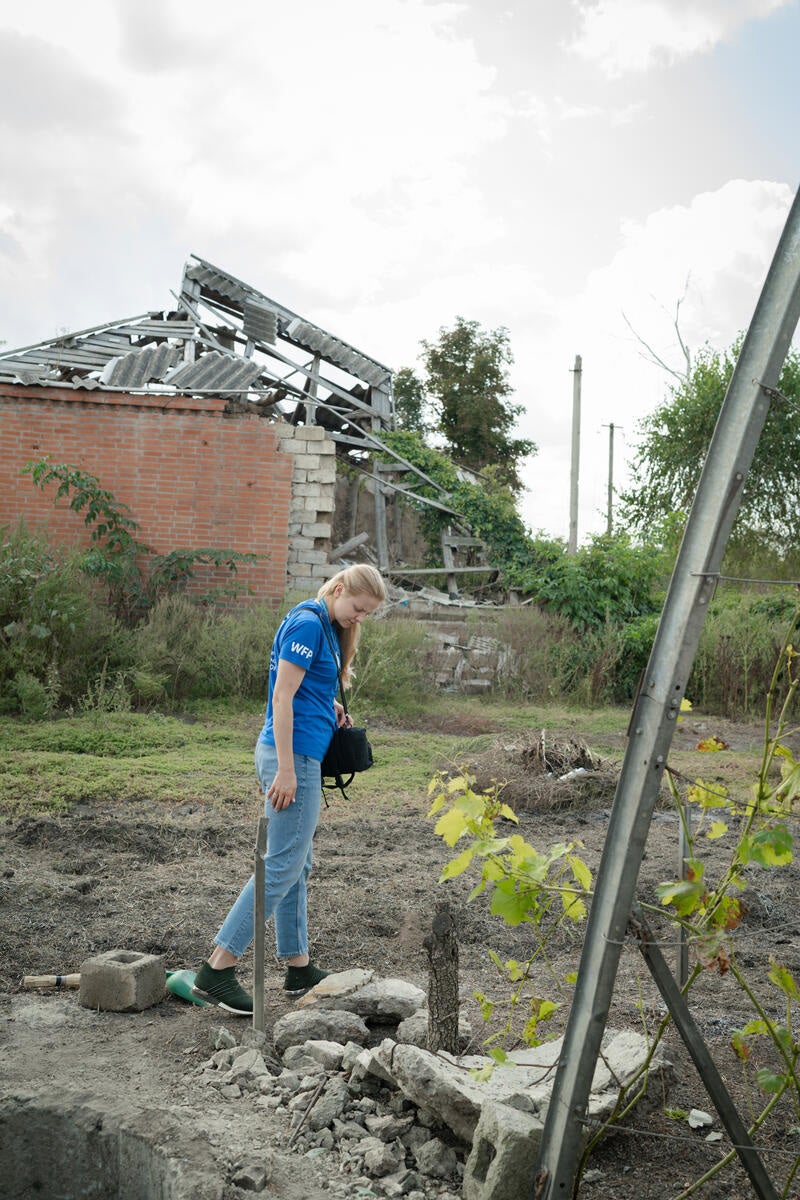
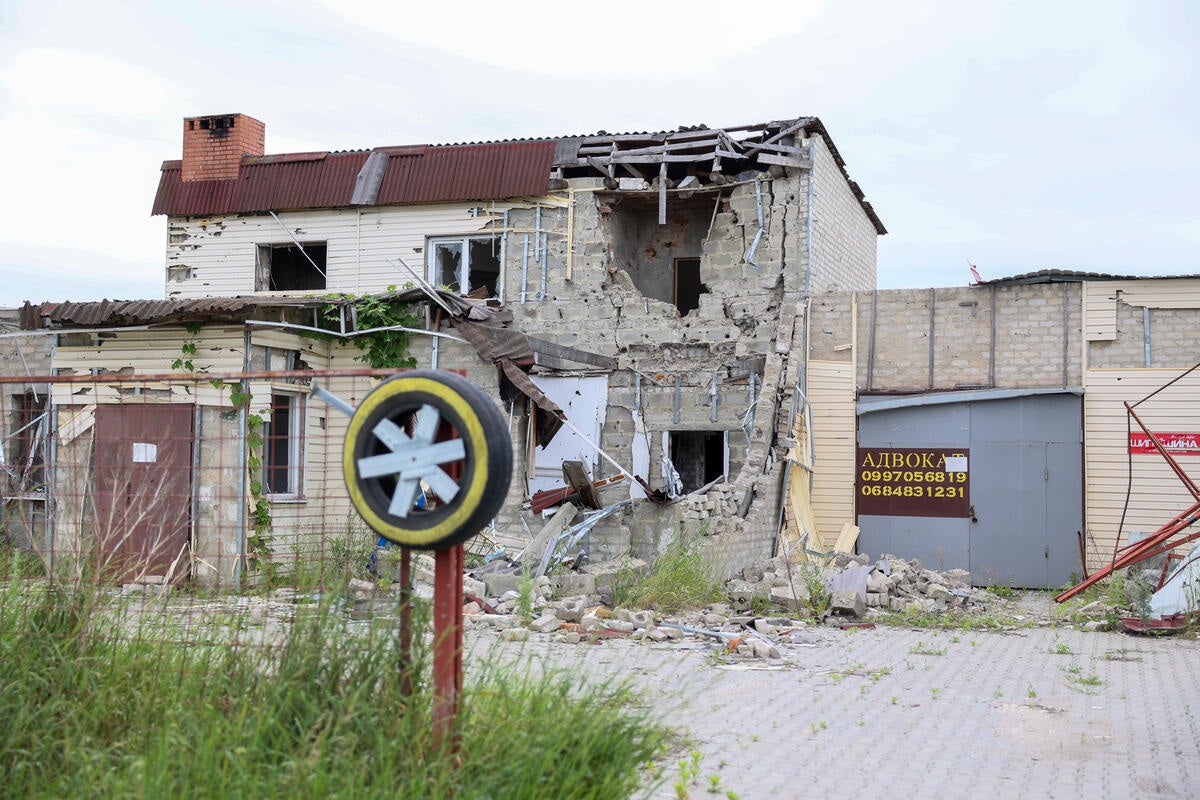
In Kamianka, many of Volodymyr and Liudmyla’s neighbours have left the village for safer places. Others have become war casualties.
“We have people who were wounded,” says Volodymyr, “people without hope. And people who already lost hope that it would ever be safe to walk here.”
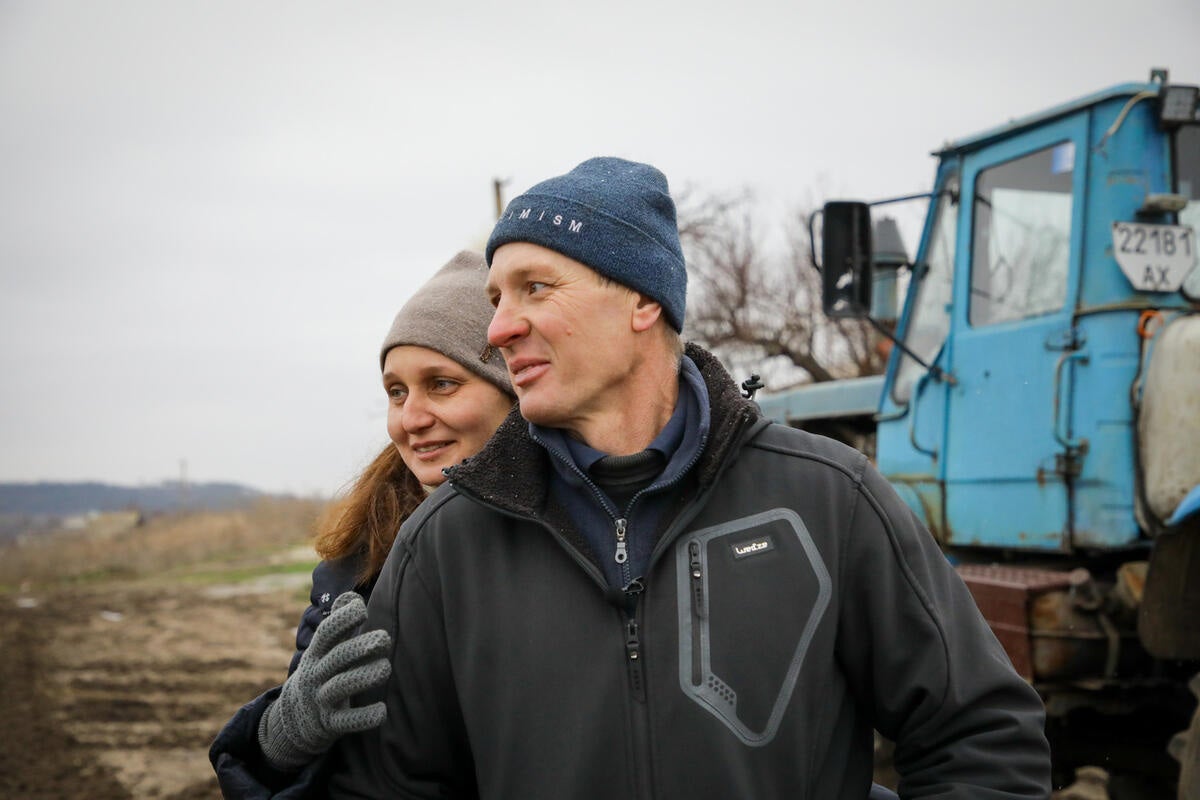
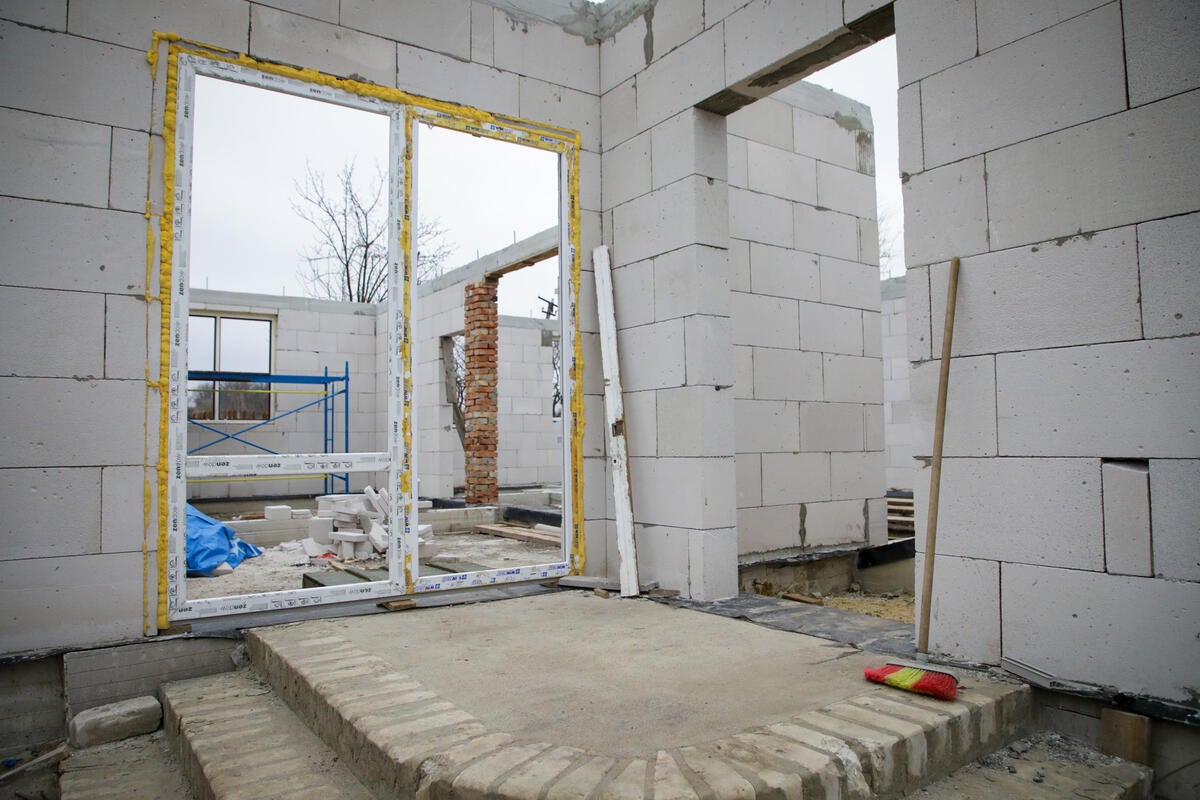
Those who remain are living with dwindling resources. Volodymyr’s family lives without heat, electricity or gas. One of his three farm labourers left.
Yet today, friends and neighbours displaced by the war are calling him to ask about the progress of the demining, eager to return. “They told me, ‘Volodia, I will be cultivating, I will rebuild here. I don’t want to leave any more,’” he says.
Learn more about the WFP’s work in Ukraine
Additional reporting by Elizabeth Bryant
Join our commenting forum
Join thought-provoking conversations, follow other Independent readers and see their replies
Comments